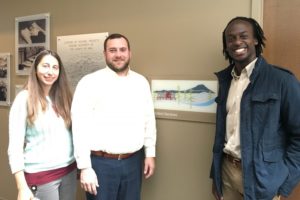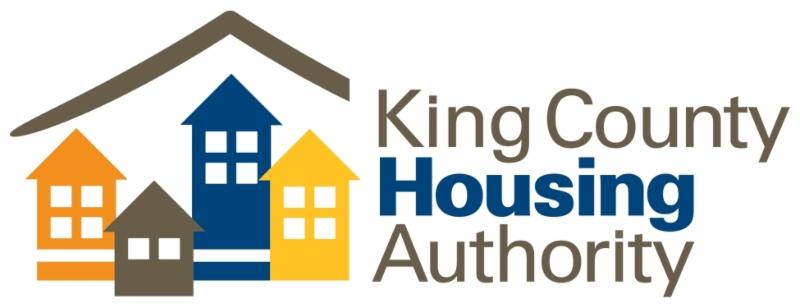King County Housing Authority (KCHA), which provides innovative and affordable housing solutions to King County residents, considers shelter to be just the first step in supporting families and building quality communities. It strives to provide opportunities and resources that help residents transcend poverty and achieve economic mobility.

Cara Ianni, Ted Dezember and Ken Nsimbi
In the early 2000s, they began working with local partners to build early learning classrooms in some of their public housing communities. As their efforts to support kids and families evolved, KCHA realized that they needed to ensure that academic supports and programs exist along the entire continuum of a young person’s life.
“We believe that we need to provide more than housing for the next generation,” says Ted Dezember, Senior Resident Services Manager for Educational Initiatives at KCHA, whose mandate is to drive their academic support services. As a former school teacher and an administrator, his experience, and understanding of the school system enable him to engage in productive conversations with school teachers, superintendents, and other stakeholders.
“We are working with our partners to create a strong workforce by ensuring that every kid graduates high school on time and is college and career ready. That’s important because data shows when kids have a career, they are able to lift themselves and their families out of poverty.”
KCHA has identified five areas to build a pipeline of connected services from pre-natal to college years: Family engagement (families actively engaged in their children’s education); Early learning (kindergarten readiness); School attendance (chronic absenteeism); Out-of-school activities (high-quality high school opportunities);and College readiness (every student graduating on time). “The purpose of this initiative and these programs is to prevent generational poverty and improve outcomes for kids and families,” says Ted.
Helping KCHA on this journey is Eastside Pathways, a convening organization that follows the collective impact model to leverage the strengths of partner organizations and help kids thrive, cradle to career. KCHA became a partner in 2012 as they realized the benefits of working together in the same space.
“Eastside Pathways helps us reach out to organizations and connect with resources in Bellevue that we didn’t have access to earlier,” says Cara Ianni, Education Programs Coordinator at KCHA. Adds Ted, “Building an empowered community cannot be done in isolation; it has to be a community-based effort and Eastside Pathways facilitates those discussions.”
For instance, Cara is working on school-based interventions with Glen Hasslinger, Supervisor of Pupil Management at the Bellevue School District and lead facilitator of the attendance collaborative. The Boys & Girls Club has an afterschool facility at three of KCHA’s Bellevue communities: Eastside Terrace, Hidden Village, and Spiritwood Manor. Each community center offers a safe after-school place that supports students’ academic success. In addition KCHA, The Boys & Girls Club of Bellevue and the Bellevue School District have implemented a new program at the Bellevue Teen Center called CLUB 678 where youth in grades 6, 7, and 8, are paired with mentors and tutors in an effort to prepare them for college and a career. KCHA also partnered with Kindering and Bellevue School District to do door-to-door outreach on their housing sites to build relations with families with young kids, identify their needs and understand how they can better connect them with more services and programs. “We want to make sure that the kids are not only getting the social-emotional support they need but also the academic support at a young age,” adds Ted.
Ted is part of the transitions collaborative at Eastside Pathways and appreciates knowing what other organizations are doing in Bellevue. He is also a member of the Partnership Leadership Committee that helps give partners a voice, facilitate conversations among partners, and problem-solve when needed. “I value the leadership role Eastside Pathways plays in getting organizations together and letting each one play our role according to our capacity and needs.”
Going forward, Ted would love to see more partners join Eastside Pathways and work in this space – all rowing in the same direction, sharing the same strategies and tools, working with the same indicators – but every organization operationalizing it differently based on their unique objectives.
About KCHA
- Vision: All residents of King County have quality affordable housing
- Owns and manages almost 3,300 units of subsidized housing for families, the elderly, and people with disabilities.
- Provides rental housing and rental assistance to more than 18,000 families
- Each year, provides housing and supportive services to more than 48,000 people who earn less than the county’s median income.
- Works with a network of partners to provide resources to help kids succeed in school and in life.
Article written by Sujata Agrawal, communications strategist and storyteller, and volunteer writer at Eastside Pathways

